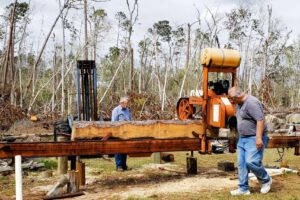As a licensed clinical social worker with 40+ years of experience working with clients, I have come to believe we were all born with a vessel, an internal container that holds our self-esteem.
When we are born, we have an empty vessel. Through our experiences we fill our vessels with self-esteem. As a newborn, when I learned how to roll over it was a success and I began to fill my vessel. Crawling, walking, using a spoon, talking, all of these experiences filled my vessel. Each time I accomplished a task, I was doubly rewarded. I was “proud” of myself and my parents would beam and exclaim with excitement at my “menial” accomplishments! My vessel of self-esteem would slowly fill.
Different Experiences Filling Vessels
Because no one’s life is perfect, there would be hiccups along the way. Maybe toilet training was particularly difficult for me. Maybe I had a really difficult time with anything having to do with sports. Maybe I failed the driving test for my license on three different occasions. All of these would be hits to my self-esteem. Cracks would appear in my vessel. A little self-esteem would ooze out.
Not everyone had the same experiences growing up.
Maybe I grew up in a home where there was alcoholism, domestic abuse or child abuse or neglect. I learned to roll over, but no one noticed. They were too busy with their own lives to acknowledge my accomplishment.
As a form of self-preservation many of my accomplishments were deliberately not announced by me. Sometimes something that resulted in calling attention to me resulted in verbal, emotional or physical abuse. I would prefer to fly under the radar and not be noticed. It is hard to fill my vessel when I am keeping my accomplishments under wraps.
Flower Children
In addition to the vessel concept, I believe we were all raised as flowers. We were raised as garden flowers, wild flowers or potted plants.
Garden Flowers
Garden flowers were cultivated. Someone paid attention to garden flowers; they were nurtured. Garden flowers had plenty of space to grow and flourish. Weeds would be pulled around them to assure the garden flower could have the deepest roots and availability to the sunshine that would help them grow. Garden flowers were given every opportunity in life.
Children who were raised as garden flowers had full vessels with few cracks.
Example: As college students, garden flowers would be the ones to flourish in class. They would ask questions, study for their exams, make friends with their classmates. They frequently would ask for extensions to turning in a paper. Why not: they had never been denied anything before! Overall, they enjoyed the process of education.
Wild Flowers
Wild flowers were the children raised in homes in which no one paid attention to them. No one weeded around a wild flower. No one watered a wild flower! The flower seeds were thrown out into a field. If they grew, great. If they didn’t, eh, who cares? Any successes that came to the wild flower were the result of hard work from the wild flower to put down deeper roots than the wild flowers around it and to grow bigger and stronger than the other wild flowers so it could catch the sunshine.
Children who were raised as wild flowers had holes in their vessels. Some were not able to patch their holes and experienced hardships in life. Other wild flowers took the initiative to patch their own holes. No one else was going to do it!
Example: As college students, wild flowers had minimal contact with the instructor and rarely asked questions or extensions in turning in a paper late. No one had ever given them a break before. Why would they get a break in college? Wild flowers would study for their exams and attend classes regularly. Their friends were ones they knew forever. Education was a means to an end.
Potted Plants
Potted plants had every part of their existence controlled. If a potted plant was inside or outside, it was because someone had put it there. If a potted plant was in the sunshine or was watered, it was because someone was paying attention. Potted plants either flourished or ceased to exist. Children who were raised as potted plants had helicopter parents who controlled every aspect of their life.
Children who were raised as potted plants had firm, shiny vessels, because someone was focused on the plant. Unfortunately, potted plants have a hole in the bottom of the vessel. With plants, the hole prevented soggy roots. In people, this hole prevents the vessel from ever being filled with self-esteem.
Example: As college students, potted plants would be the ones who sat in the front row. They would ask questions before, during and after class. They would ask for extensive clarification on even how the instructor wanted a research paper stapled, for example, on the upper left corner or along the left side. They would take copious notes in class. Even though they had made it into college, they were racked with self-doubt. They had never lived an independent life. It wasn’t so much that they were excited about attending college as it was an opportunity to experience independence.
Flower Children and Vessels
If parents and adult caregivers provide a positive supportive environment, for example, raising their child as a garden flower, self esteem can flourish and vessels are filled.
If parents and caregivers do not provide a safe, secure environment, for example, raising their children as wild flowers or potted plants, self-esteem has a hard time flourishing. The vessel cannot be filled. And if it is filled, self-esteem oozes out of the vessel, leaving it empty.
In childhood you were very susceptible to the influences of others. As a child with the skills that you have, it is very difficult to patch the holes in your vessel. But in adulthood, you have choices. You can patch the holes in your vessel. For more information on how to do this, please see my other blogs on self-esteem:
- Recent blog on 10 Proven Ways to Boost your Self-Esteem
- Article on 30 Ways to Boost Resilience
Take-away Point
We are all born with a vessel. While we may not have a choice on how our vessel is filled as a child, we have a choice in adulthood. Take advantage of the opportunities in life to patch the holes in your vessel and move along in life.
Quotes about Self-Esteem
“Life is not easy for any of us. But what of that? We must have perseverance and above all confidence in ourselves. We must believe that we are gifted for something and that this thing must be attained.”
Marie Curie (1867-1934)
“You’re never as good as everyone tells you when you win, and you’re never as bad as they say when you lose.”
Lou Holtz (1937- )
“A successful man is one who can lay a firm foundation with the bricks others have thrown at him.”
David Brinkley (1920-2003)
The above quotes are from Parade.com – 101 Confidence Quotes by Maryn Liles
With warmest regards,
To be notified of future posts, please enter your email address and click on the Subscribe button.












